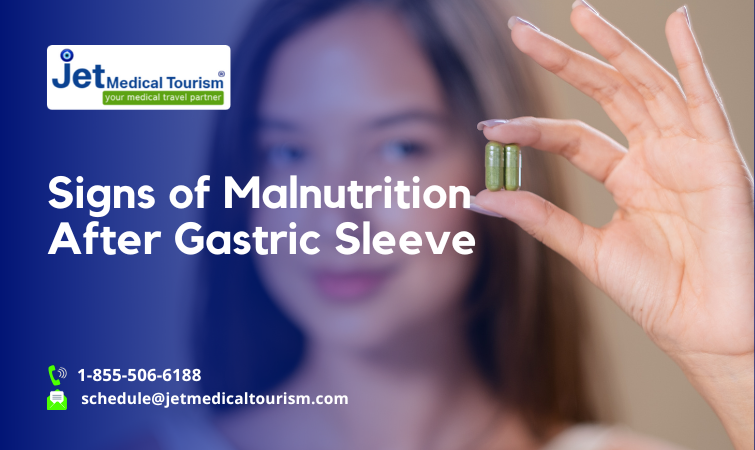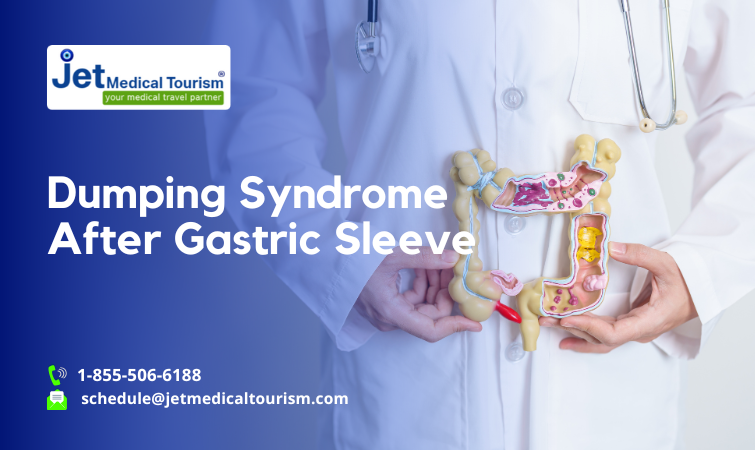Signs of Malnutrition After Gastric Sleeve
Gastric sleeve surgery is a highly effective weight loss procedure, but it also comes with certain risks—including malnutrition. While this surgery offers substantial benefits in terms of weight reduction and improvement in obesity-related health issues, it also poses risks, including signs of malnutrition after gastric sleeve. Malnutrition can occur due to reduced nutrient absorption and inadequate dietary intake post-surgery. Understanding these risks and how to manage them is crucial for patients undergoing this procedure.
In this article, we’ll discuss the signs of malnutrition after gastric sleeve, the most common deficiencies, and how to ensure proper nutrient intake post-surgery. Whether you’re preparing for surgery or adjusting to life after the procedure, understanding how to maintain proper nutrition is crucial for a successful weight loss journey.
Understanding Malnutrition After Gastric Sleeve
Malnutrition occurs when the body doesn’t get enough essential nutrients to function properly. This can happen due to reduced food intake, poor absorption, or inadequate dietary choices after gastric sleeve surgery.
Studies show that 20% of patients face moderate to severe malnutrition risks one year post-surgery
How Common is Malnutrition After Gastric Sleeve?
Malnutrition is relatively common after gastric sleeve surgery, but it is preventable with proper diet and supplementation. Studies indicate that:
- 30-50% of patients experience iron deficiency within the first year post-op.
- Up to 68% of patients develop a Vitamin D deficiency.
- Folate and Vitamin B12 deficiencies are frequently seen in over 30% of patients.
The key to preventing malnutrition is early detection and proactive nutrition management.
Signs & Symptoms of Malnutrition After Gastric Sleeve
It’s crucial to recognize the early signs of malnutrition to avoid long-term complications. Below are the most common symptoms:
1. Unexplained Fatigue and Weakness
A constant feeling of tiredness may indicate iron, vitamin B12, or folate deficiency. These nutrients are essential for red blood cell production and oxygen transport in the body.
2. Hair Loss and Brittle Nails
Losing hair in clumps or noticing brittle nails? This could signal protein, biotin, or zinc deficiency. Protein intake is crucial post-surgery to maintain healthy hair, skin, and nails.
3. Frequent Dizziness or Lightheadedness
Iron and vitamin B12 deficiencies can lead to anemia, causing dizziness and a lack of focus. If you experience these symptoms regularly, consult your doctor.
4. Muscle Loss and Weakness
Protein deficiency can cause muscle wasting or weakness, making it harder to perform daily activities. This is a sign that your protein intake is insufficient.
5. Skin Issues and Slow Healing Wounds
Vitamin C and zinc deficiencies can lead to dry skin, rashes, or slow wound healing. If you’ve noticed these issues post-surgery, you may need to adjust your diet.
6. Mood Changes and Depression
Low levels of B vitamins, iron, and Omega-3 fatty acids can contribute to irritability, anxiety, or even depression. Proper nutrient intake supports brain function and mental well-being.
7. Digestive Problems (Constipation or Diarrhea)
Lack of fiber and essential nutrients can cause gut issues. Additionally, low magnesium levels may result in constipation, while zinc deficiency can lead to diarrhea.
8. Vision Problems (Blurred Vision or Night Blindness)
Vitamin A deficiency is linked to eye problems, including dry eyes, blurred vision, and difficulty seeing in low light.
How to Avoid Malnutrition After Gastric Sleeve
Preventing malnutrition requires a well-balanced diet, proper supplementation, and regular monitoring. Here’s how you can maintain optimal health post-surgery:
1. Follow a Nutrient-Dense Diet
- Your stomach’s reduced capacity means every bite should count. Focus on:
- Lean proteins (chicken, fish, eggs, tofu)
- Healthy fats (avocados, nuts, olive oil)
- Fiber-rich vegetables (broccoli, spinach, carrots)
- Low-glycemic fruits (berries, apples, oranges)
2. Take Recommended Supplements
Since food alone may not provide sufficient nutrients, bariatric-specific vitamins are essential. Common recommendations include:
- Multivitamin with iron
- Vitamin B12 (sublingual or injections)
- Calcium citrate with Vitamin D
- Protein supplements (if dietary intake is insufficient)
3. Stay Hydrated
Dehydration can worsen nutrient absorption. Aim for at least 64 oz (2 liters) of water per day.
4. Eat Smaller, Frequent Meals
Rather than large meals, eat 5-6 small meals daily to ensure steady nutrient intake.
5. Monitor Nutrient Levels Regularly
Routine blood tests every 3-6 months help detect deficiencies early. Key tests include:
- Iron panel
- Vitamin D, B12, and folate levels
- Calcium and magnesium levels
6. Work with a Nutritionist
A bariatric dietitian can help create a personalized meal plan to ensure you get the necessary nutrients.
How Do I Not Get Too Skinny After Gastric Sleeve?
Gastric sleeve surgery helps with weight loss, but losing too much can lead to muscle loss, fatigue, and nutritional deficiencies. To prevent this, focus on balanced nutrition, strength training, and regular monitoring.
- Increase Protein Intake: Aim for 60-80g of protein per day to maintain muscle mass. Prioritize foods like lean meats, eggs, dairy, and protein shakes.
- Include Healthy Fats: Add avocados, nuts, olive oil, and fatty fish for extra calories without overloading on unhealthy fats.
- Strength Training: Engage in resistance exercises to preserve muscle and prevent excessive weight loss.
- Monitor Weight & Intake: Track weight changes and adjust portions as needed to avoid going below a healthy weight range. Avoid dropping below 900–1,000 calories/day.
- Consult a Dietitian: If you continue losing weight too fast, a bariatric dietitian can adjust your diet to ensure you get enough calories and nutrients.
If you’re feeling weak, fatigued, or struggling to maintain a healthy weight, consult your bariatric surgeon to prevent malnutrition-related complications.
What is the Most Common Deficiency After Bariatric Surgery?
Among bariatric patients, iron, vitamin B12, vitamin D, and calcium deficiencies are the most common.
Quick Breakdown of Deficiencies & Symptoms
- Iron Deficiency → Fatigue, pale skin, dizziness
- Vitamin B12 Deficiency → Weakness, tingling hands/feet
- Vitamin D Deficiency → Bone pain, muscle weakness
- Calcium Deficiency → Brittle bones, muscle cramps
Being proactive about supplements and diet is key to avoiding these deficiencies. To prevent deficiencies, take a bariatric-specific multivitamin, eat a well-balanced diet, and get regular blood tests. If symptoms of deficiency appear, consult your doctor for proper supplementation.
Conclusion
Malnutrition is a real risk after gastric sleeve surgery, but it is entirely preventable with the right approach. By recognizing the signs of malnutrition, following a nutrient-rich diet, taking essential supplements, and undergoing regular blood tests, you can ensure long-term health success.
If you’re considering gastric sleeve surgery in Tijuana, Mexico, Jet Medical Tourism is here to guide you every step of the way. Contact us today to learn more about how we help patients achieve a healthy and sustainable weight loss journey!
References
- Risk of Malnutrition in Adults After Sleeve Gastrectomy (PMC, 2023)
- Post-Bariatric Dietary Guidelines (UCSF Health, 2024)






